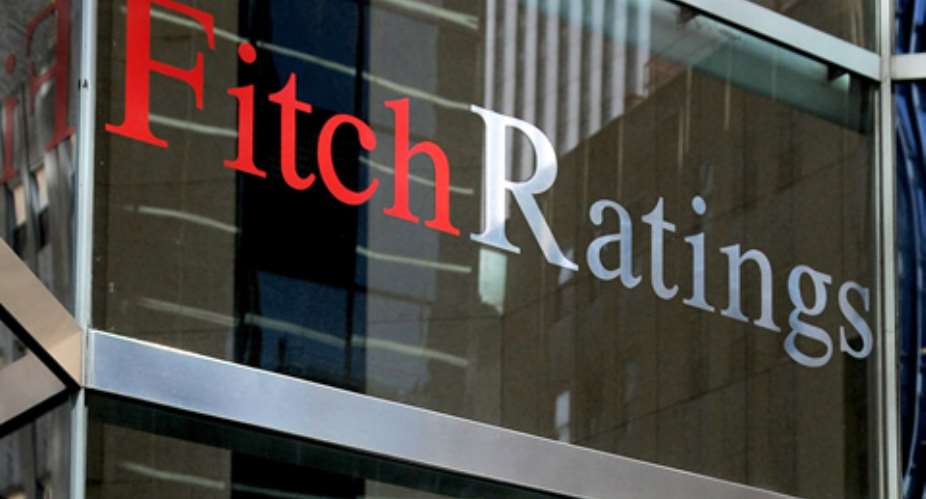Credit rating agency, Fitch Ratings, has affirmed Ghana at ‘B’ with a stable outlook, citing medium-term growth potential and improving macroeconomic stability.
It noted that falling inflation will allow Bank of Ghana to continue lowering monetary policy rate and take other actions to loosen monetary policy.
According to Fitch, Ghana’s non-oil domestic output is expected to continue to grow as power provision improves while banks continue to clear non-performing loans from their balance sheets.
Key rating drivers
It explained that the ratings reflect the country’s medium-term growth potential and improving macroeconomic stability, which is supported by the authorities’ commitment to putting public finances on a sustainable path.
“This is balanced against high government debt, existing weakness in public finances, and low GDP per capita.
“Fiscal outruns from the first half of 2017 indicate that the government’s fiscal consolidation efforts remain on track.
“Revenues have underperformed their mid-year budget targets, but reported expenditure has been lower as well,” it added.
Fitch expects the general government deficit on a cash basis to narrow to 7.3% of GDP, down from 9.3% in 2016.
The credit rating agency’s forecast is higher than the government’s forecast of 6.3%, reflecting the view that tax cuts included in the budget to spur economic activity will keep revenues lower than envisaged.
“Moreover, the risk of off-budget spending and the accumulation of new arrears remains a risk.
“Ghana’s high public sector debt level stabilised in 2016. Fitch forecasts general government debt to fall to 71% of GDP in 2017, down from 73% at end-2016.
“Falling government debt is positive for Ghana’s ratings, but the current debt level is higher than peers, both as a percentage of GDP (the ‘B’ median is 56% of GDP) and a percentage of revenue. Ghana’s general government debt/revenue is 364%, well above the ‘B’ median of 227%.
“Domestic payment arrears and contingent liabilities from energy sector SOEs present additional debt sustainability risks,” it said.
Fitch noted that the accumulation of GH¢1billion in new arrears in 2016, along with GH¢5 billion in outstanding expenditure claims, brings the total stock of outstanding government arrears to as much as 3% of GDP. Furthermore, a recent audit estimated energy sector SOE arrears to domestic banks, suppliers and other SOEs at 13% of GDP.
Fitch forecasts real GDP growth of 6% in 2017, up from 3.5% in 2016.





 We’ll protect state wealth from opaque deals – Prof Jane Naana
We’ll protect state wealth from opaque deals – Prof Jane Naana
 Mauritania president says running for second term in June polls
Mauritania president says running for second term in June polls
 I won't ever say I was a mere driver’s mate' — Prof. Opoku-Agyemang
I won't ever say I was a mere driver’s mate' — Prof. Opoku-Agyemang
 2024 polls: 'EC struggling to defend credibility'— Prof. Opoku-Agyemang
2024 polls: 'EC struggling to defend credibility'— Prof. Opoku-Agyemang
 Akufo-Addo gov't's 'greed, unbridled arrogance, unrestrained impunity, sheer dis...
Akufo-Addo gov't's 'greed, unbridled arrogance, unrestrained impunity, sheer dis...
 Election 2024: Ghana needs an urgent reset, a leadership that is inspiring – Ma...
Election 2024: Ghana needs an urgent reset, a leadership that is inspiring – Ma...
 Partner NDC to rollout a future of limitless prospects – Prof Jane Naana Opoku-A...
Partner NDC to rollout a future of limitless prospects – Prof Jane Naana Opoku-A...
 NPP will remain in gov’t till Jesus comes — Diana Asamoah
NPP will remain in gov’t till Jesus comes — Diana Asamoah
 Sunyani Technical University demands apology from former SRC president over sex-...
Sunyani Technical University demands apology from former SRC president over sex-...
 'Dumsor' was resolved by Mahama but ‘incompetent' Akufo-Addo has destroyed the g...
'Dumsor' was resolved by Mahama but ‘incompetent' Akufo-Addo has destroyed the g...
